Streaming on Amazon Prime from today, Alice Birch’s six-part adaptation of 1988 film Dead Ringers opens with twins Elliot and Beverly (both now played by Rachel Weisz) at a dingy diner. The pair are sharing dinner after a hard day’s work. It’s a sequence that serves as a statement of intent for the series, which returns time and again to the idea of appetites and consumption.
A lot of Dead Ringers takes place over food. The end of the first episode finds the pair back at that same diner. The second episode largely unfolds at a dinner party organized by venture capitalist Rebecca Parker (Jennifer Ehle). The fourth episode climaxes at a birthday dinner for the twins, with their parents Al (Kevin McNally) and Linda (Suzanne Bertish), that goes horribly wrong. The fifth episode features a dinner with the family of Georgia obstetrician Marion James (Michael McKean).
Appetite is important, particularly for the twins. “My sister says I’m a hungry person,” Elliot confesses in the first episode. “I love to feast, but just once.” She comes home after her sister’s date with actor Geneviève (Britne Oldford) and gorges herself on the spread that they’ve laid out. Marion’s mother (Diane J. Findlay) reveals that he was a twin. “Dead right after he was born,” she explains. “He was so small and this one was so fat. I think you’d been eating him in there.”
Such appetites hint at something deeper. After all, Elliot’s appetites extend beyond food. Elliot is the more outgoing and voracious of the pair; she’s an enthusiastic drug user, sexually adventurous, and professionally ambitious. Dead Ringers reinforces this idea when Beverly takes Geneviève back to their apartment. “Are you hungry?” Beverly asks. Geneviève replies, “Is that a line?” Beverly responds, “No, I’m genuinely fucking starving.” Even people are just things to be consumed.
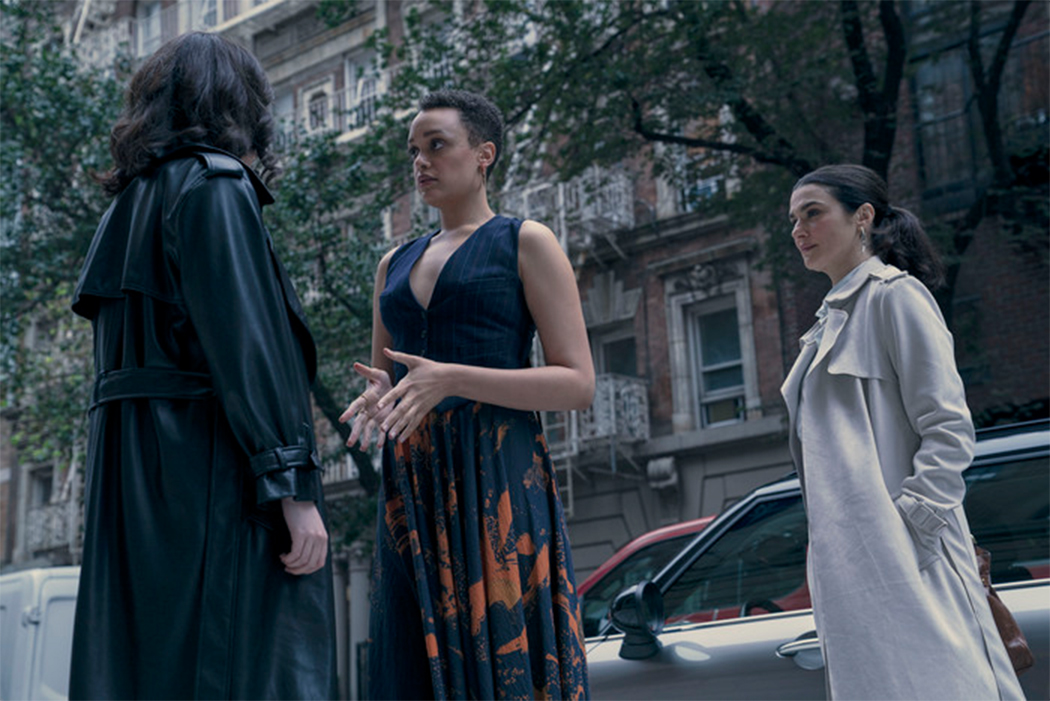
This applies even to love. In the first episode, Beverly is starstruck by Geneviève. “I can get her for you,” Elliot offers her younger twin. “Would you like that?” Later in the season, Elliot explains the process to Geneviève, “We occasionally operate on a delivery system, and she wanted you so I got you.” It’s a bleakly transactional process, one that reduces human interactions to the equivalent of ordering takeaway dishes off a menu.
Then again, this feels somewhat appropriate. Elliot and Beverly are both obstetricians, and the show is built around the establishment of a reproductive center. Their plan is to make the process of giving birth more convenient for women. Beverly is horrified by her sister’s desire to monetize these ambitions, complaining, “It’s not fried food, Elliot.” According to Beverly herself, the plan is to “change the way that women birth, change things structurally, globally.”
Much like House of the Dragon, Dead Ringers is candid in its depiction of the process of birth. “It’s definitely very graphic. Very, very voyeuristic,” Weisz explained in pre-release interviews. “They both deliver babies. So the body horror is more around that [than in the film], which is just part of life, how every single human on the planet got here. We all came from a woman’s body.” Dead Ringers is part of a wave of media more comfortable with the realities of giving birth.
However, while acknowledging these horrific realities and challenges, Dead Ringers is wary of who will get to benefit from Beverly and Elliot’s work. Birch worked as story editor on the second season of Succession, and Dead Ringers intersects with that show in its fascination with the overlap between capitalism and body horror, the idea that the system reduces many of those who live under it to “economic units” that function at the behest of the all-too-human impulses of those at the top.
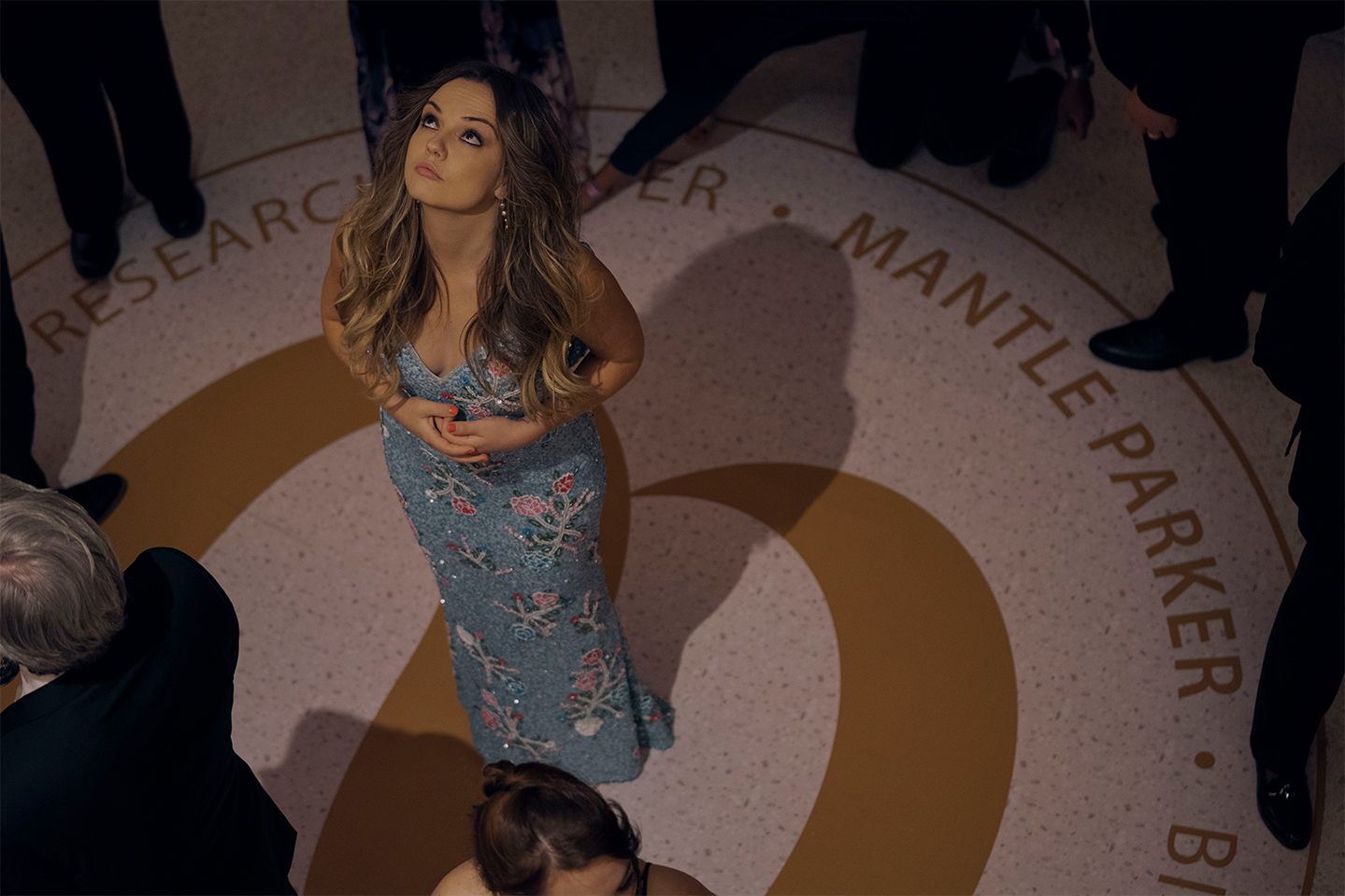
In Succession, the characters lack the ability to transcend the limitations of their human bodies. The show begins with patriarch Logan Roy (Brian Cox) suffering a stroke, and the title of the show alludes to his inevitable death. No matter how much money he has, his son Roman (Kieran Culkin) can’t get past his own impotence. Even Kendall Roy (Jeremy Strong) is subject to his own drug addictions and substance dependencies. Flesh is a limitation that money cannot buy a way around.
In contrast, Dead Ringers argues that this won’t stop the rich from trying. At Rebecca’s dinner party, the twins are shocked to discover that all the guests have experienced trepanning. Rebecca’s niece (Allyson Kloster) describes herself as “a biohacker.” The assembled guests are less than excited about Elliot’s plans to revolutionize birthing for women and much more interested in the possibility that cells from younger subjects could be used to slow down or even prevent menopause.
Dead Ringers argues birth is something the wealthy already outsource. In the first episode, Beverly finds herself dealing with Nicki (Emily Donahoe), who is acting as a surrogate for Lara (Miriam Silverman). Beverly tries to make the process as comfortable as possible for Nicki, but Nicki makes her own health secondary to Lara’s priorities. She is essentially renting out her body for cash. “I’m concerned about the stress for the patient,” Beverly observes. “I’m the fucking patient,” Lara replies.
Beverly sees the center as an alternative to this model. “We wouldn’t be setting it up so that women like you could buy other women wholesale and do what you want with them,” she warns Lara. “Do you want her other fucking organs? Would you like me to pull out her fucking teeth while I’m at it?” This is at odds with what Rebecca wants. When her wife Susan (Emily Meade) remarks that she finds babies “boring,” Rebecca replies, “I had a bunch. I mean, I didn’t do the having, obviously.”
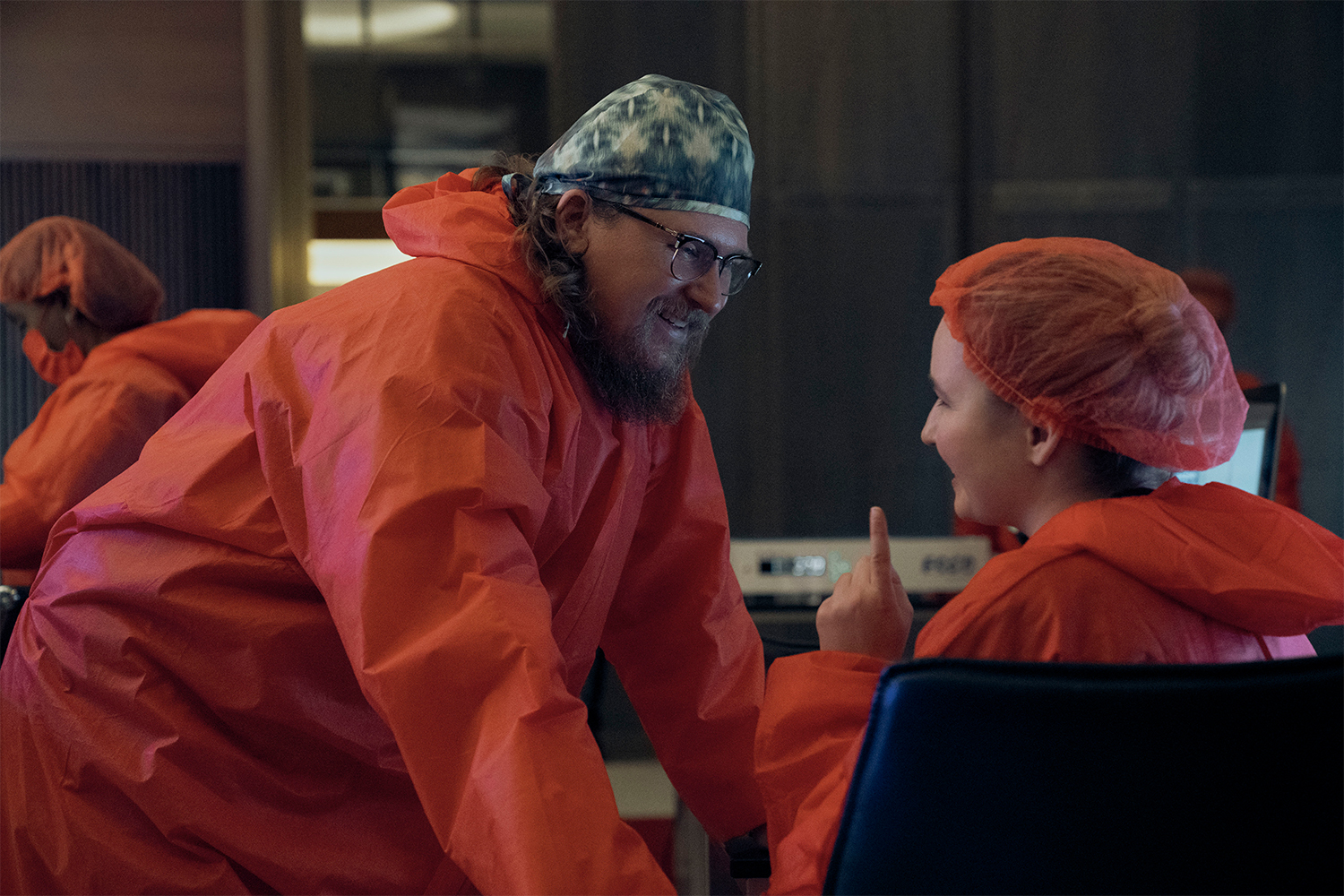
Dead Ringers suggests that the history of obstetrics is tied to exploitation of the female body. Such exploitation was historically done by men. When the twins open their second birthing center in Georgia, Marion regales them with his history of the profession, claiming it developed through a partnership between an 18th century male doctor and female patient. Later in the episode, Ellie is confronted with the true story: It was experimentation conducted on a young slave.
This is the paradox of Dead Ringers. Beverly’s efforts to make birthing safer for ordinary women are abstracted by Elliot, who tries to completely strip any humanity out of the process. Beverly tries to have her own baby through methods like implantation, while Elliot grows her own clones of Beverly in incubators in the lab. There’s an inhumanity to it all. “People matter,” argues journalist Silas Jordan (Ntare Guma Mbaho Mwine). “Other people matter. They’re not just matter for Elliot’s experiment.”
Again, this ties back to the food imagery. It isn’t just that human beings are raw materials for Beverly and Elliot’s research; it’s that most of these conversations take place over dinner. The camera often lingers on shots of characters pulling apart food on the plate as they talk clinically about their longer-term ambitions and the history of their profession. Again, there’s an inhumanity to all of this, but there’s also a clear hierarchy in place. There are those who eat and those who are eaten.
The unsettling implication is that the only thing that has changed is that such exploitation is now equal opportunity, at least in terms of race and gender. It is women doing this to other women for other women. At one point, Silas challenges Elliot, “What Frankenstein shit are you up to?” There’s no small irony in this accusation, given that Frankenstein is a horror story about men trying to control the process of reproduction. Dead Ringers suggests women can be just as monstrous.
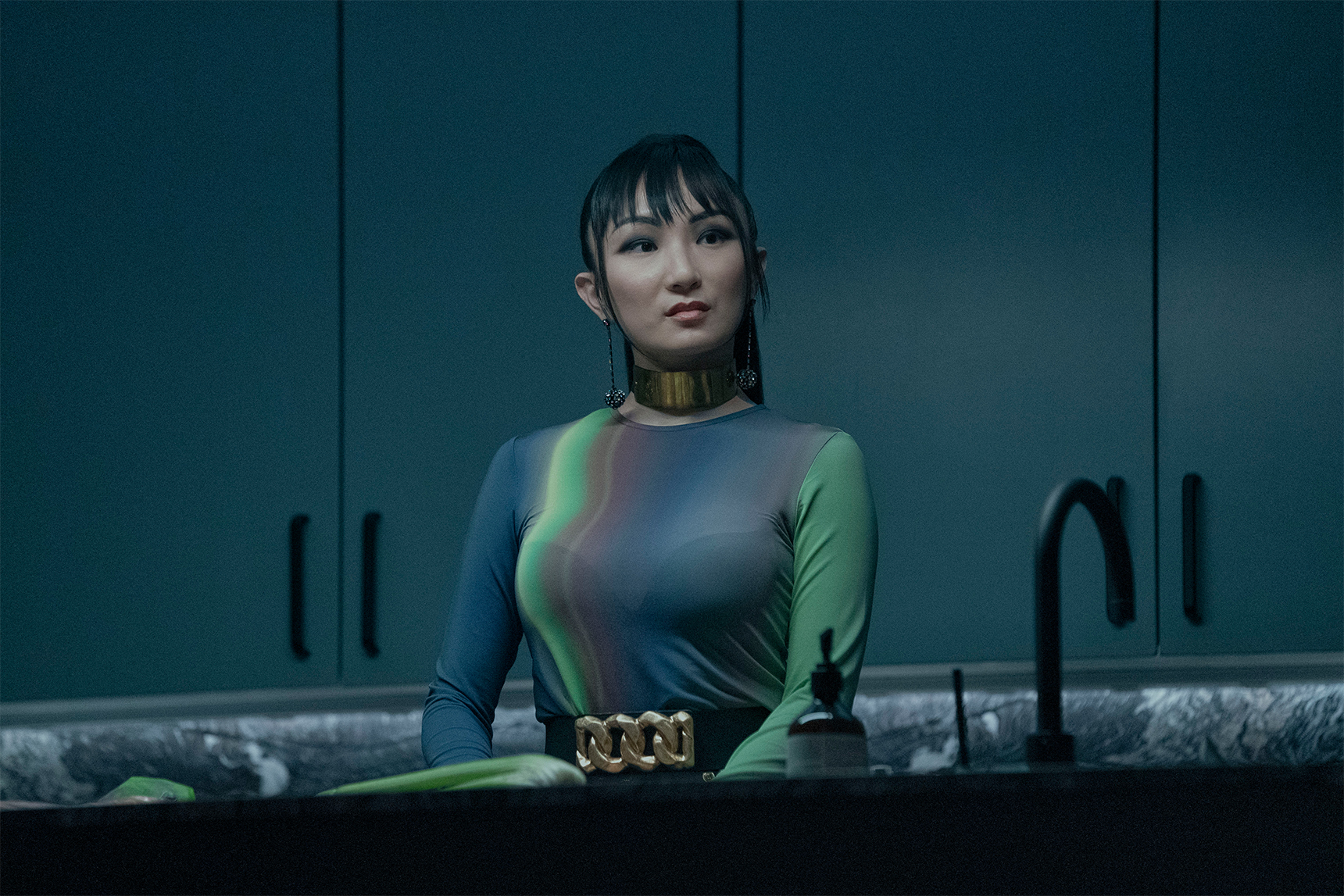
The twin imagery is evocative here, particularly the idea of the twins feeding on one another, as perhaps Marion did on his dead twin. When Geneviève takes Beverly away for a week, marking the first time that the twins have ever been in a separate city, Elliot latches on to her sister. The two embrace, and Elliot kisses her sister’s neck. However, she holds the kiss. It suggests a vampire or a leech, something feeding off another to sustain itself.
As one might expect given the subject matter, motherhood is a recurring preoccupation for Dead Ringers. Linda struggled as a mother to both Elliot and Beverly, despite her best efforts. “I couldn’t do it,” she confesses. “You’re going to be a terrible mother, Beverly.” Beverly responds, “I know.” A subplot follows the twins’ maid, Greta Leung (Poppy Liu), who puts together a show about her relationship with her own mother, that reconnects her with her father (Geoff Lee).
In its own way, Alice Birch’s adaptation is even more rooted in the 1980s than the 1988 David Cronenberg movie that it adapts. The soundtrack is saturated with synth hits like “Sweet Dreams” or “Don’t You Want Me.” Certainly, Birch’s take on the material is much more interested in the way in which capitalism warps and shapes every relationship than the earlier film, which was more closely tied to David Cronenberg’s fascination with body horror as an act of creation.
At its core, though, the central fear of Dead Ringers is solipsism, the nightmare that nothing exists beyond the self, and the idea of parenthood as a challenge to that. Neither Elliot nor Beverly, nor the people around them, can see beyond their own desires and appetites. Beverly claims to want to do charity work and help women everywhere, but Rebecca challenges her, “Isn’t that just about making you feel good?” While pregnant, Beverly confesses that she doesn’t even want children.
This interest on appetite and feeding, particularly through a feminine lens, makes Dead Ringers a fascinating companion piece to the more explicitly cannibalistic themes of Yellowjackets. It’s certainly a lot to chew over.

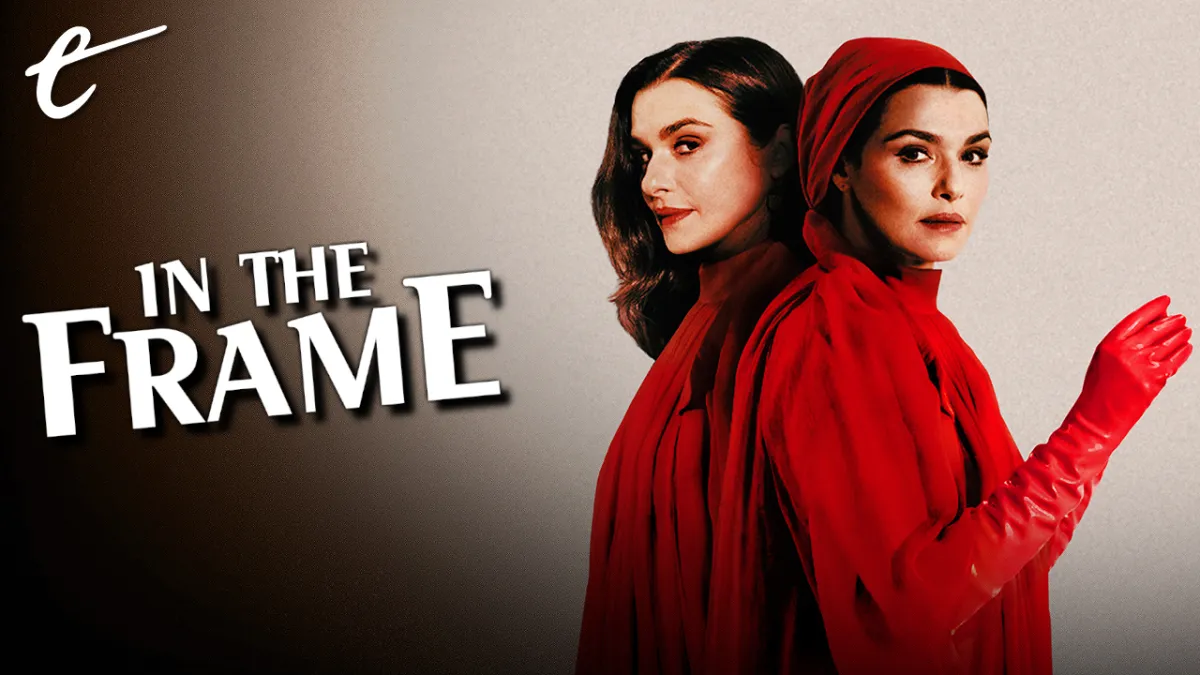




Published: Apr 21, 2023 11:00 am